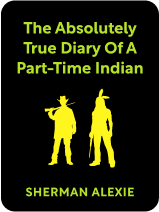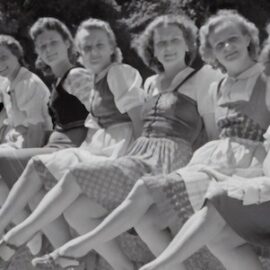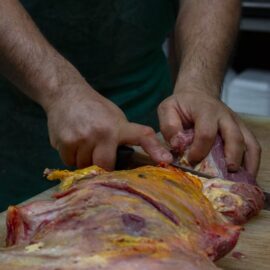

This article is an excerpt from the Shortform summary of "The Absolutely True Diary of a Part-Time Indian" by Sherman Alexie. Shortform has the world's best summaries of books you should be reading.
Like this article? Sign up for a free trial here .
Are you looking for the best The Absolutely True Diary of a Part-Time Indian quotes? What can these quotes tell you about the lessons in the book?
These four The Absolutely True Diary of a Part-Time Indian quotes discuss Junior’s experiences growing up on the reservation and switching schools.
Check out these amazing The Absolutely True Diary of a Part-Time Indian quotes.
The Absolutely True Diary of a Part-Time Indian Quotes
These The Absolutely True Diary of a Part-Time Indian quotes are about Junior’s life on the reservation and the first year of his time at Reardan. These quotes cover major themes in the book, and each quote offers a brief explanation from the book.
“So I draw because I want to talk to the world. And I want the world to pay attention to me. I feel important with a pen in my hand. I feel like I might grow up to be somebody important. An artist. Maybe a famous artist. Maybe a rich artist.”
Cartoons
Junior spends most of his time at home drawing cartoons. There are many reasons he loves to draw:
- Drawing at home is safer than being outside.
- Drawing is a more dependable and universal language than words. Only certain people understand particular languages like Spanish and Chinese. But everyone understands drawings.
- Drawing brings Junior hope. While most of the time he feels like a “zero” on the rez, he feels important when he’s drawing. Junior thinks he might be a famous artist one day. He believes his art could be his ticket to a better life.
“Poverty doesn’t give you strength or teach you lessons about perseverance. No, poverty only teaches you how to be poor.”
This is one of the The Absolutely True Diary of a Part-Time Indian quotes that discusses poverty. For Junior, the worst thing about being poor isn’t hunger. It’s the inability to save his best friend, his dog Oscar. When Oscar gets sick, Junior begs his mom to take Oscar to the vet, but the family doesn’t have the hundreds of dollars needed for the operation. Junior’s father shoots Oscar to put him out of his misery. Bullets only cost two cents.
Junior sometimes wants to blame his parents for their poverty, but he knows he can’t. He knows his family’s poverty is not his parents’ fault, and he knows they dreamed of more. But no one on the reservation realizes their dreams. They don’t get the chance. They’re too poor. And that creates a cycle that’s hard to escape.
- First, you believe you’re poor because you’re stupid.
- Then, you believe you’re stupid because you’re Indian.
- Finally, because you’re Indian, you believe you will always be poor, and the cycle repeats itself.
Poverty doesn’t make you strong or perseverant. Poverty just “teaches you how to be poor.”
“I suddenly understood that if every moment of a book should be taken seriously, then every moment of a life should be taken seriously as well.”
One day, Junior is shocked when Gordy tells him that books should give Junior a boner. Not knowing what to make of that, Junior runs with Gordy to the library, where Gordy demands that Junior marvel at all the books.
Junior’s unimpressed. It’s a small library. Gordy confirms that there are exactly 3,412 books (he’s counted), making it a relatively small library. But he points out that you could read one library book a day and it would take almost ten years to read every book in the room. Even small pockets of the world are full of potential knowledge.
This makes Junior think of his hometown, Wellpinit, and he realizes that even the smallest, most seemingly insignificant places are full of mystery. Junior finally gets Gordy’s point and is in awe, understanding that the more you learn, the more you learn that there’s more to learn. This is the idea that Gordy thinks should give everyone a “metaphorical boner,” his comical term for joy. Gordy teaches Junior that the hard work of learning can be joyous.
“Each funeral was a funeral for all of us. We lived and died together.”
Junior experiences many deaths in his life. This is one of the many The Absolutely True Diary of a Part-Time Indian quotes that discusses how Junior feels about these deaths.
Two thousand people attend the wake for Junior’s grandmother, moved to the football field to accommodate them all. None of them taunt Junior. This is a turning point in Junior’s relationship with the members of his community: People on the rez stop ignoring or bullying him. They witness the grief of his family, and in their sympathy, they seem to stop viewing Junior as the enemy.
At the wake, a white billionaire shows up and says he has tracked down Gradnmother Spirit to return a Powoww outfit he has in his collection. But Junior’s mother stands up and says that it’s impossible, Grandmother Spirit was never a Powoww dancer. Embarrassed, the billionaire hurries away, taking the outfit with him. For a couple of minutes, everyone at the wake is silent, not knowing what to make of this odd interruption. Then, Junior’s mom starts to laugh. Her laughter is contagious, and soon, all two thousand guests are laughing. They laugh for the rest of the wake, laughing and crying as they bury Grandmother Spirit.
Consider these The Absolutely True Diary of a Part-Time Indian quotes when analyzing major themes in the book, or when you’re looking for great examples of Junior’s voice.

———End of Preview———
Like what you just read? Read the rest of the world's best summary of Sherman Alexie's "The Absolutely True Diary of a Part-Time Indian" at Shortform .
Here's what you'll find in our full The Absolutely True Diary of a Part-Time Indian summary :
- How Junior gets split between two worlds when he goes to a mostly white school
- How Junior overcomes being an outsider to being part of welcoming social circles
- The tragedies of alcoholism and poverty that leave Junior with renewed strength






